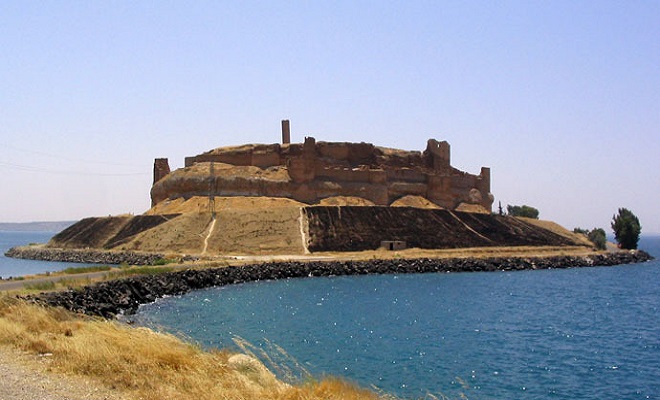 Tomb of Suleyman Shah (Photo from Wikipedia.org)
Tomb of Suleyman Shah (Photo from Wikipedia.org)
Featured
The Abduction of Suleyman Shah
by Dr. Can Erimtan, via RT.com:
Turkey, ruled by the Justice and Development Party (or AKP), has over the past years openly opposed Bashar al-Assad’s rule in Syria. Still, it took Recep Tayyip Erdogan many years to actually send his troops next door . . . until late February that is.
About three weeks after the lifting of the siege of Kobani right across the Turkish-Syrian border and just days after having agreed to train a new “Syrian rebel” force in the central Anatolian town of Kırsehir, Turkey’s AKP-led government ordered its Armed Forces (or TSK, in its acronymized Turkish form) to perform a rather spectacular operation that began late Saturday and ended in the early hours of Sunday (21-22 February 2015).
Turkish troops crossed into Syrian territory to remove the remains of “the grandfather of Sultan Osman, the founder of the Ottoman dynasty” (an obscure historical figure called Suleyman Shah) as well as the Turkish soldiers guarding his tomb inside Syria.
This strange rescue operation received the name ‘Shah Firat’. The existence of this Turkish exclave on Syrian soil goes back to 1921 when Ankara’s Grand National Assembly, then constituting the country’s provisional government, signed an agreement with the French, bringing an end to hostilities and demarcating the territories held by the provisional Turkish government and France, respectively. The document’s 9th article deals specifically with the tomb of Suleyman Shah, stipulating that the building and its grounds “shall remain, with its appurtenances, the property of Turkey, who may appoint guardians for it and may hoist the Turkish flag there.”
The tomb has been in the Turkish media for many months now. As long ago as August 2013, the then-still-PM Tayyip Erdogan declared that the “tomb of Suleyman Shah [in Syria] and the land surrounding it is our territory. We cannot ignore any unfavorable act against that monument, as it would be an attack on our territory, as well as an attack on NATO land . . . Everyone knows his duty, and will continue to do what is necessary.”
As such, the Islamic State (or IS, then still primarily known as ISIS/ISIL) had been threatening the Turkish exclave ever since March 2014. In fact, in the course of the following month the AKP leadership even appeared willing to organize a false flag attack on the tomb to garner popular support in the then-upcoming local elections. In the end, however, a leaked recording of an incriminating conversation seems to have thwarted these efforts. Turkey’s government has long had diplomatic contacts and ties with the IS and other Islamist groups in Syria, notably the outfit named Ahrar al-Sham.


















